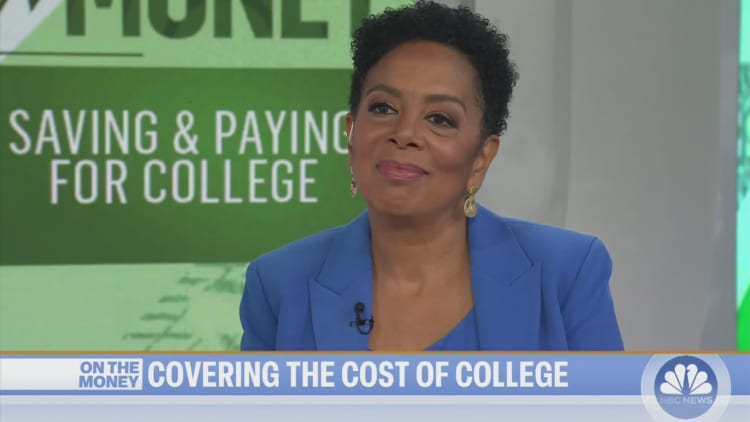[ad_1]
Andersen Ross Photography Inc | Digitalvision | Getty Images
Some colleges offer and push financial products to students that can be exploitatively pricey, a new report by the Consumer Financial Protection Bureau finds.
“This analysis indicates that hundreds of colleges are paid by financial institutions to market certain products to students,” the bureau writes. “This can lead to students paying more for financial products than they would on the open market.”
Between 2021 and 2022, financial institutions generated over $17.3 million in revenue from more than 650,000 student bank accounts, the CFPB says. These banks may hit students with overdraft fees as high as $36, among other charges, even as many other financial institutions have ended such practices. Account holders at historically Black colleges and universities, or HBCUs, and Hispanic-servicing institutions paid especially high fees, on average.
Meanwhile, credit card issuers paid colleges and affiliated organizations over $19.6 million in 2022, with more than 140 partnerships between schools (and their associations) and credit card issuers.
More from Personal Finance:
3 year-end investment tax tips from top-ranked financial advisors
Unaffordable rents are linked to premature death, Princeton study finds
Is the U.S. in a ‘silent depression?’ Economists weigh in on the TikTok theory
Lawmakers have tried to curb the marketing of financial products at colleges. In 2008, Congress passed the Higher Education Opportunity Act, which established some protections for students against unfair and deceptive private educational lending. The Credit Card Accountability Responsibility and Disclosure Act, or CARD Act, of 2009, reined in aggressive advertising of credit cards on campus.
Despite such legislation, “many colleges continue to offer and market financial products in ways, including through online and email advertisements, that may mislead students under certain circumstances,” according to the CFPB.
“Reading this report, I was disappointed to see that some of these practices are apparently still going on,” said Betsy Mayotte, president of The Institute of Student Loan Advisors, a nonprofit.
Here’s what students should know, consumer advocates say.
Students can pick where financial aid ‘refunds’ go
Students typically receive a “refund” or “credit balance” of their financial aid after their school has applied their funding to tuition and fees. “Disbursement of credit balances are vital to students,” the CFPB says, and help students cover essentials “including food [and] housing.”
Institutions often contract with banks to offer deposit accounts with these funds, according to the bureau.
In other cases, colleges partner with financial institutions to offer bank accounts or prepaid cards, separate from financial aid disbursement. Many schools allow students to use their ID cards as debit or prepaid cards, if they participate with the partnered bank.

“When students choose to use their IDs for financial services, they may be required to open a new account with a specific financial institution,” the CFPB writes. And in some instances, misleading marketing can make it seem like a student must use their ID cards to access their remaining financial aid.
Don’t fall for it, said higher education expert Mark Kantrowitz.
“Students have a right to have their financial aid refund deposited to a bank account of their choosing,” he said. “They do not have to have it deposited to the debit card or bank account picked by the college.”
Students should spend some time shopping around and looking for an account with the least fees, Kantrowitz added. Some online banks offer free checking accounts and free withdrawals from any ATM.
When you’ve found a good option, colleges usually have a form where you can provide the bank routing and account number of your choosing.
Credit cards should be mostly avoided
Although credit card companies have scaled back their marketing on college campuses, problems persist, the CFPB found. “College students continue to rely on credit cards to help cover costs,” it says.
In general, students should avoid carrying a balance on a credit card, experts say.
While undergraduate federal student loans disbursed last summer had an interest rate of 5.5%, the average interest rate on credit cards is more than 20% of late.
Even if your college appears to be recommending a card, you should be wary, said Elaine Rubin, director of corporate communications at Edvisors. “Credit cards can be high risk,” Rubin said.
Young people looking to build their credit may want to explore secured credit card options, she added. These typically require a security deposit and have smaller credit limits than unsecured cards.
Don’t miss these stories from CNBC PRO:
[ad_2]
Source link



